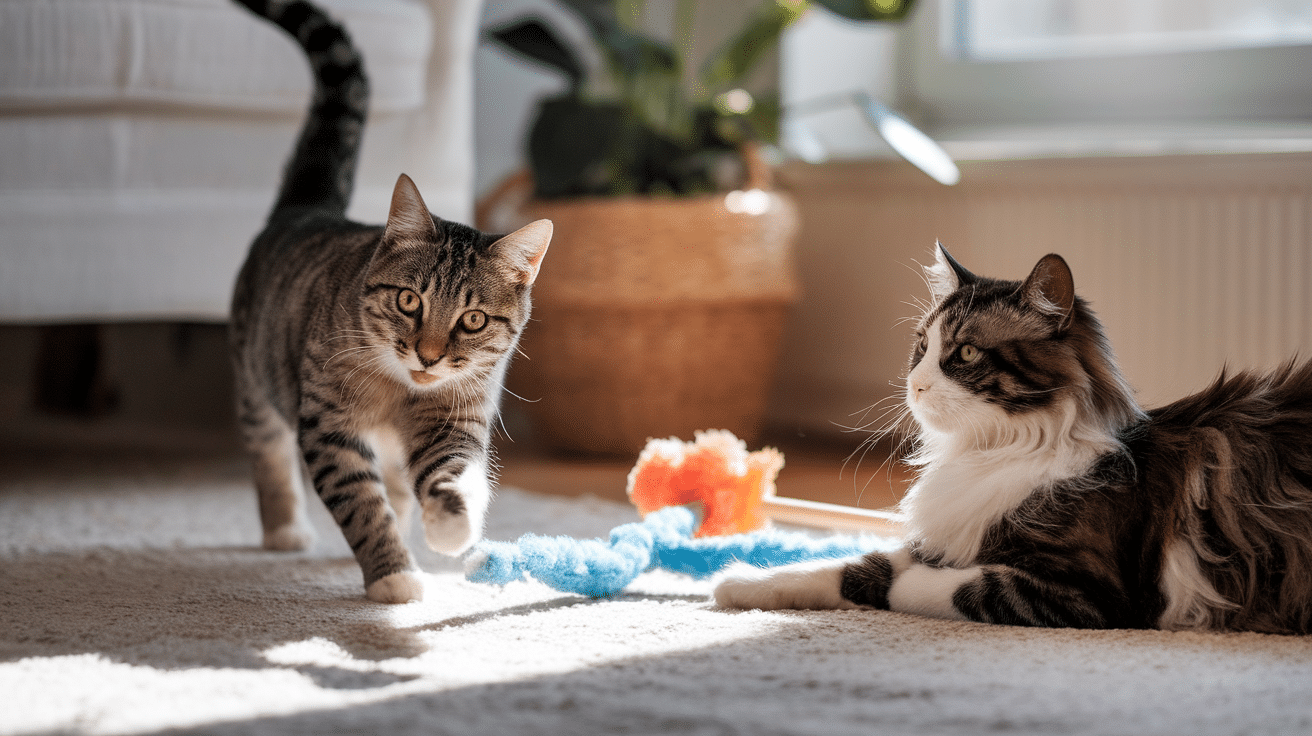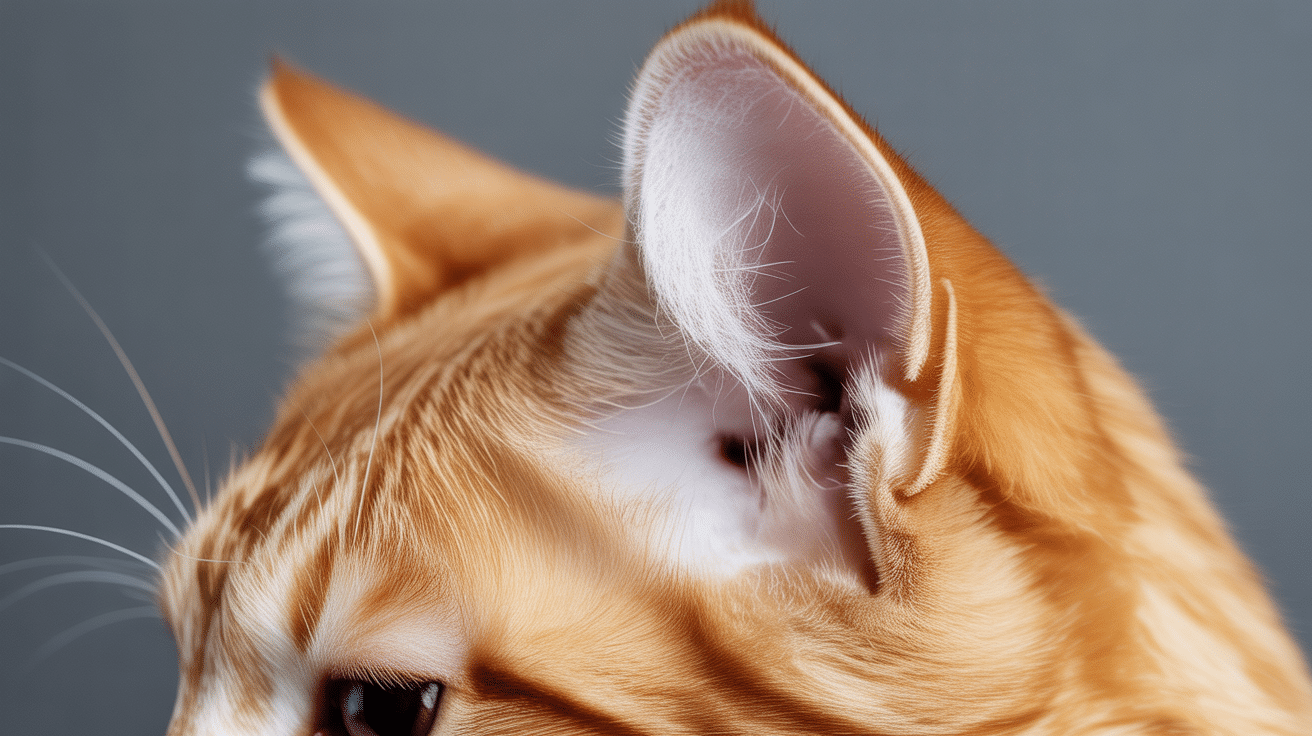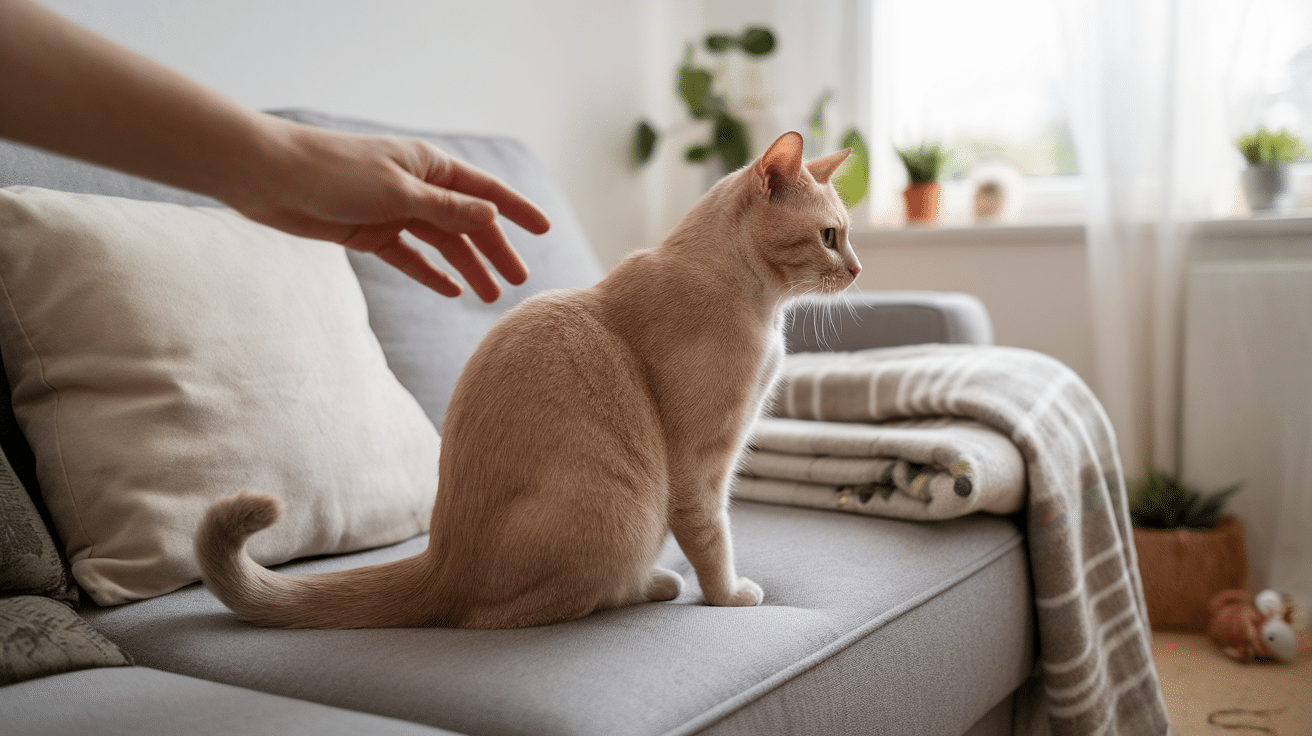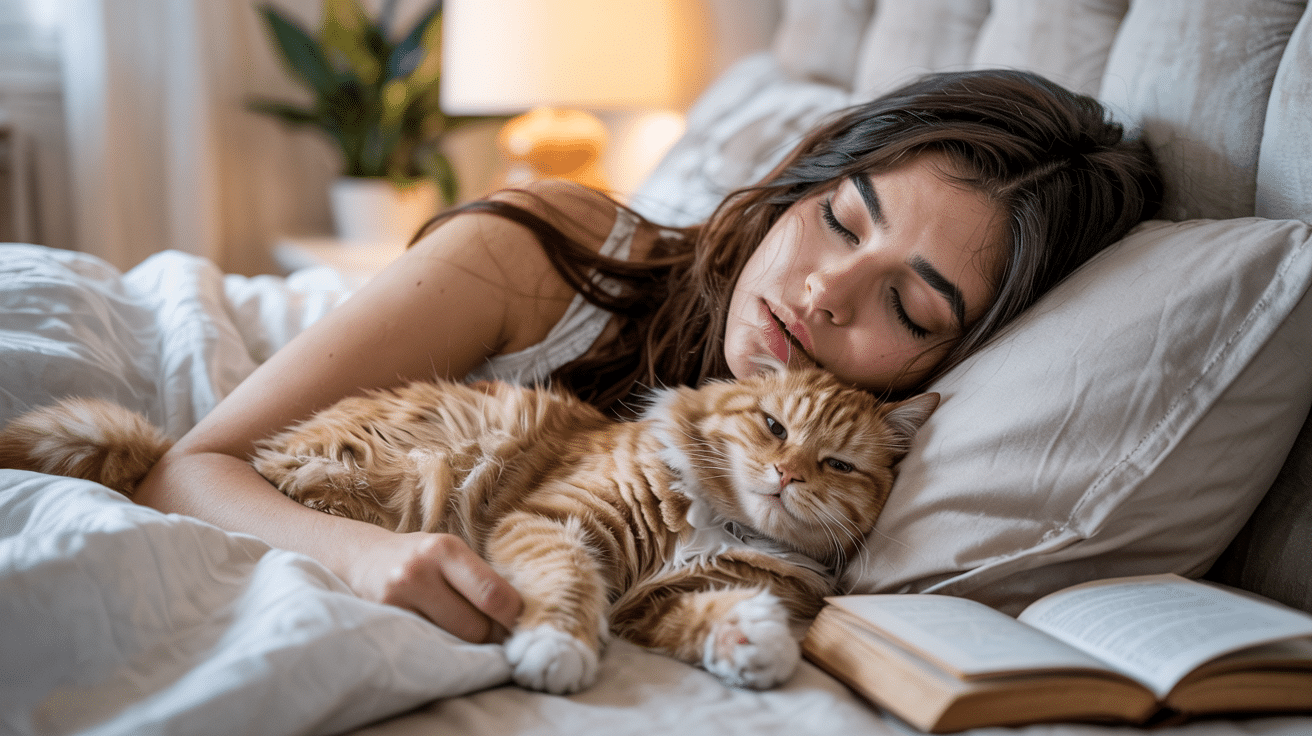When choosing a cat, many wonder if gender makes a difference in behavior.
While male and female cats can make loving pets, some owners notice certain personality patterns.
Male cats often enjoy social time and cuddles, while female cats might value their alone time more.
Remember that each cat is unique, with their quirks and traits.
Many factors shape your cat’s behavior beyond gender—their early experiences, upbringing, and whether they’ve been fixed play bigger roles in forming their character.
Understanding these general tendencies can help you pick a cat that fits your home, but remember that the individual cat’s personality matters most when finding your perfect pet companion.
General Personality Differences
Male Cat Personality
Male cats tend to be more openly affectionate with their owners. They often seek cuddles and attention, sometimes following you around the house.
Their playful energy shows in how they chase toys and initiate games throughout the day. Neutered males usually get along well with other cats.
They form friendships more easily and have fewer territorial issues, making them good choices for homes with multiple cats.
Female Cat Personality
Female cats typically value their independence. They’re comfortable spending time alone and don’t require constant attention from their owners.
With new people, females are often more cautious. They watch from a distance before deciding to approach.
Once they bond with someone, though, they show deep loyalty. Female cats tend to be more protective of their space and possessions.
They may carefully guard favorite spots, toys, or dishes than males.
The Role of Neutering/Spaying in Personality
How Neutering Affects Male Cats
Neutering significantly changes male cat behavior. Most neutered males become calmer and less likely to mark their territory with urine.
The urge to spray around the home typically decreases or stops completely. These cats show less interest in roaming or fighting with other cats.
Without the drive to find mates, they stay closer to home and avoid the risks of wandering outdoors.
Neutered males often become more focused on their human family, using their energy for play and bonding instead of territorial behaviors.
How Spaying Affects Female Cats
Spayed females no longer experience the restlessness and loud yowling that comes with heat cycles.
This makes them more settled and quieter household companions.
After being spayed, females typically show more interest in their home lives than in trying to escape to find mates.
This leads to stronger bonds with their human families. Spayed cats become less territorial and generally get along better with other pets.
Without hormonal drives to protect potential nesting areas, they more readily share spaces and resources in multi-pet homes.
Personality Based on Age and Upbringing
Early Socialization’s Impact
Kittens exposed to various people, animals, and environments grow into more confident cats in their first 12 weeks.
Those handled gently by humans from birth typically become friendlier with people.
Without these early positive experiences, cats often develop fearful or shy tendencies.
Under-socialized female kittens may take longer to trust humans than males with similar backgrounds, though patient interaction helps both genders become loving pets.
Age and Personality Changes
Young male cats stay highly energetic until about 2-3 years old, when they become more settled.
Females typically mature emotionally earlier, showing adult behavior patterns around 1-2 years.
Senior males become more relaxed and often seek more lap time than when younger. Older females maintain their independence but may become more vocal and routine-oriented.
Both genders sleep more with age, though males adapt more easily to household changes.
Male vs Female Cats: Energy Levels and Playfulness
| Aspect | Male Cats | Female Cats |
|---|---|---|
| Energy Levels | Generally higher, especially in young adults | More moderate and consistent |
| Play Style | Rough and tumble, physical play | Strategic, hunting-focused play |
| Play Duration | Longer play sessions, multiple times daily | Shorter, more focused play periods |
| Toy Preferences | Interactive toys, things they can wrestle with | Puzzle toys, objects they can stalk |
| Downtime | Quick bursts of energy followed by naps | More evenly distributed active and rest periods |
| Training | Often respond well to clicker training | May need more motivation for training activities |
| Exercise Needs | Usually requires more daily exercise | Typically, self-regulated activity levels |
| Nighttime Activity | More likely to be active at night | Better at adjusting to household sleep schedules |
Territorial Behavior and Social Interactions
Male Cats and Territorial Behavior
Unneutered males claim larger territories by spraying urine and scratching visible surfaces. They often challenge other males who enter their space, which can lead to fights.
After neutering, males become much less territorial. Most reduce or stop spraying and show less aggression toward other cats.
Their focus shifts from defending large areas to enjoying smaller spaces within the home.
Female Cats and Social Behavior
Females establish smaller territories than males but defend them more intensely. They’re especially protective of resting areas.
When meeting strangers, they prefer to watch from a distance before deciding to approach. Spaying reduces a female’s territorial drive considerably.
Without hormones influencing their behavior, spayed females become more accepting of other cats and less concerned with strict boundaries.
However, they still maintain their personal space preferences.
Choosing the Right Cat for Your Home
Matching Personality to Lifestyle
For busy households with children, male cats often adapt well to the activity and noise.
Their social nature makes them more likely to engage with family members of all ages.
If you work long hours, a female cat might better handle alone time without developing separation anxiety.
Their independent streak can be advantageous in quieter homes or for owners who travel occasionally. Homes with dogs or other cats might find neutered males easier to introduce to the existing pets.
Males generally show more flexibility in social hierarchies and may accept new animal family members with less adjustment time.
Considerations for First-Time Cat Owners
First-time cat owners often find male cats more forgiving of handling mistakes. Their naturally affectionate nature means they typically bounce back quickly from negative interactions.
Female cats tend to be cleaner and may require less grooming assistance.
They’re usually more fastidious about litter box habits and self-cleaning, which can be helpful for new owners learning cat care basics.
Females often establish consistent patterns more quickly for those wanting a predictable routine.
Males might be more adaptable to schedule changes but can be more rambunctious during their younger years.
Conclusion
When choosing between male and female cats, remember that gender offers just one clue about a cat’s potential personality.
Males may be more openly affectionate and playful, while females often show independence and careful loyalty.
However, each cat has a unique character shaped by its genetics, early life experiences, and how it was raised.
Whether a cat has been fixed also significantly affects their behavior.
The best approach is to spend time with a cat before bringing them home, paying attention to how they interact with you rather than focusing solely on whether they’re male or female.
Your perfect feline friend might defy all gender stereotypes!
Frequently Asked Questions
Are male cats more affectionate than female cats?
Males often show affection more openly through cuddling and following their owners. Females typically express love through proximity and gentle interaction, becoming deeply loyal once bonded.
Which gender of cat is calmer?
Neutered adult males are often calmer overall. Females tend to be more independent and measured in their energy. Both can be relaxed companions when their needs are met.






